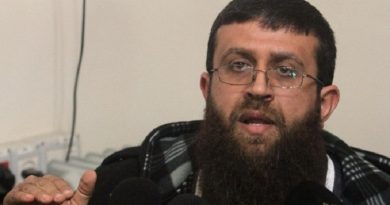Create a culture that counters terrorism – Imad Hamad
Terrorism is a global problem. Recently, there have been attacks in Turkey, Iraq, Mali, Belgium and Pakistan. It seems that almost no place on Earth is immune from the threat of terrorism. Granted, terrorism is a complex phenomenon and usually has many causes. Today, the world perceives terrorism committed by those of Arab nationality and/or those of Muslim faith as one of the most pressing threats to global security.
In countering terrorism, all decent, peace-loving people are in the same camp and are all required to be part of the solution instead of being spectators to unfolding tragedies.
Our duty and responsibility as peace-loving people is to help create a culture that values human rights of all people, and therefore helps immunize our youths against the virus of hate that focuses on the demographic background of the target and on political objectives rather than on people’s basic humanity.
In addition to laudable law enforcement efforts to disrupt and prevent terror, there are other efforts that can help counter terrorism. Many people wonder after every terror attack, why would anyone attack human beings indiscriminately, people whom the perpetrators do not know? One of the key factors that lead to these indiscriminate attacks is the world outlook of the attackers. The work for us in the human rights community is to change that.
As to the Muslim and Arab worlds, historically there were two major ideological projects — pan-Islamism and pan-Arabism. Both outlooks divided the world into us and them. Pan- Islamism called for the brotherhood and unity of all Muslims regardless of their national or ethnic background. Pan-Arabism called for the unity of the Arabs. Pan Arabism won the war of ideas until 1967.
However, the defeat of Egypt’s President Gamal Abdel Nasser was deemed a defeat of Arab nationalism as a viable ideology and pan-Islamism presented itself as the savior ideology.
We in the human rights community take no issue with political ideology. It is a freedom of expression issue. However, when a society in this day and age defines itself along the lines of Muslim or non-Muslim, without being enmeshed in a larger milieu of an emphasis on human rights and human brotherhood, this creates a fertile ground where misguided youths or youths with criminal backgrounds would not hesitate to attack the other.
In creating a cultural emphasis of respect for the human rights of all, and in the belief in the brotherhood of all humanity, we help prepare a society that has belief in human rights and humanity in its DNA.
Imad Hamad is executive director of the American Human Rights Council in Dearborn.




